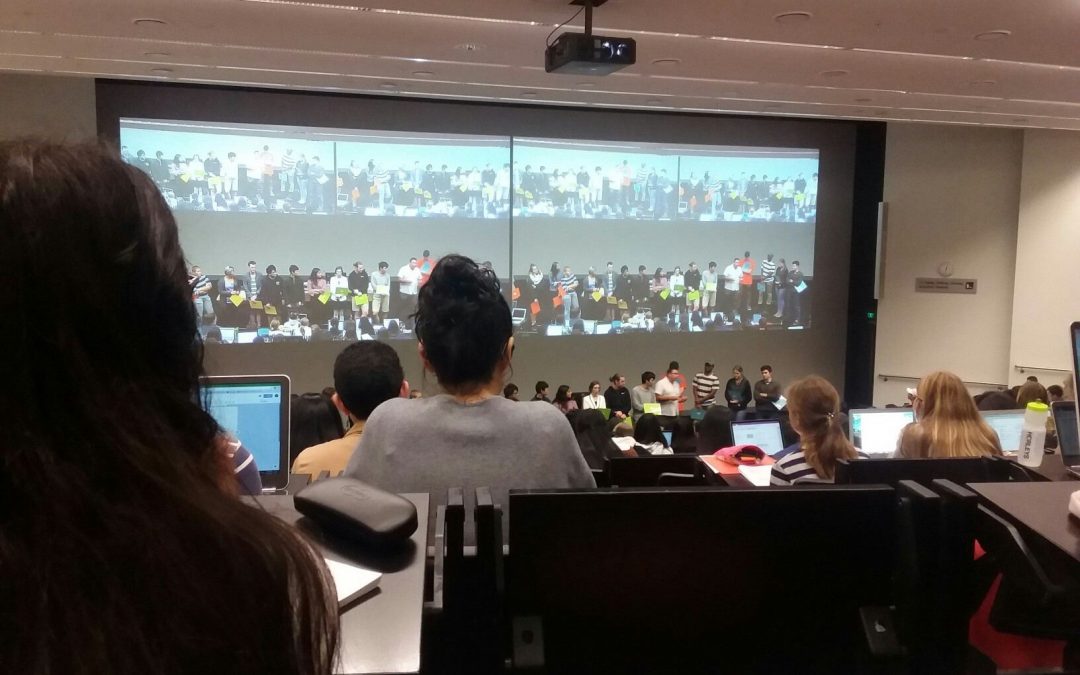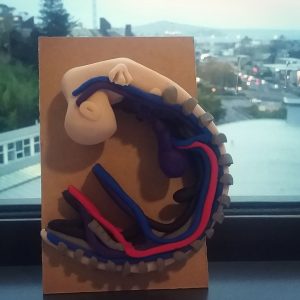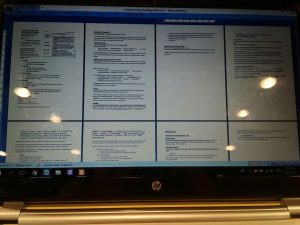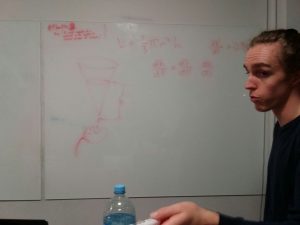“If ya don’t know what you don’t know, it’s pretty hard to get to know what you should be knowing.”
-Daniel Chow
Say what??
Pretty much, if you don’t know exactly what you should be studying, it’ll be a battle and a half studying effectively so that you’re prepared for what exams may test you on. For example, just reading over notes or repeatedly highlighting ‘keywords’ on pages and pages of pre-readings in the hope that you will pick up valuable knowledge is nowhere near as effective as being certain about what you need to know and trying to learn that.
Just a quick disclaimer before I continue:
This is my personal take on studying, specifically in exam prep, and there is absolutely no guarantee that this will work for you or anyone other than myself, but I’m gonna share it with ya’ll in the hopes that it may help you.
There are a few strategies I use to help me identify where my knowledge is lacking, in preparation for a test:
[1] Learning Objectives
Gleaned from the course guide and the lecture outlines, the learning objectives are my first point of reference to find out what I should be getting into my noggin. They are sometimes brief, but most of the time they do give a fair indication of what general direction my study should be heading.
[2] Past Papers
As the majority of the tests I sit are MCQs, the distinctive style of examination means that the questions themselves have prompts that may trigger recall. However, this method by and large is still applicable to nearly any exam style, not limited to MCQs. A few weeks out from the test, I begin to pull out the practice exams provided and attempt them. Some people would recommend sitting them under ‘exam conditions’, but for me, I work through the paper in my own time, doing the following process.
- Attempt each question, justifying when I can, why each question option is correct or incorrect.
- Mark the paper, taking note of the places where I struggled to justify my choices and where I got questions wrong.
- These parts of the test that I have identified that I may struggle with, I invest my time to target my learning.
- When it comes closer to the time of the test, I can usually pull out the same set of tests and resit them.
[3] Flowcharts
The good news about a few of the first year modules in Biomed/Healthsci, is that a lot of the learnt concepts and processes are interlinked, and so lend themselves to a flowchart/ brainstorm method where you can easily see how everything relates to each other in the big picture.
The core of the method is basically:
a) Choosing a topic, maybe of a single lecture and
b) Writing everything you know about that topic on a whiteboard/piece of paper in a linked/diagrammatic style with minimal prompts then
c) Referencing notes and guides, filling in the gaps of knowledge in a different colour pen.
The information in a different colour indicates target areas to work on.
Because this method requires very in depth knowledge of the topic with barely any triggers, it is perhaps one of the more advanced techniques of identifying weaknesses.
[4] Group Discussions
Living in the halls, with a decent group of people studying the same papers as me, it is of massive advantage to have (at nearly anytime) someone present to discuss concepts and questions with.
Just by setting aside an evening to do a crash course on a few modules of a paper can be of immense help. Doing this helps to vocally clarify tough concepts and if it turns out that you learnt it all wrong, you’ll get told by your peers fairly soon. You might all learn pieces of knowledge that individuals may have overlooked but is brought up in the discussion. Having to also justify or explain a concept to a peer is also of immense aid. Talking is a lot faster than writing so more material can be covered in a shorter space of time.
As you might guess, this level of learning material is quite advanced, as you need to have a large amount of prior knowledge in the group to effectively hold a discussion on the topic. I usually do this in the week leading up to a test to identify any elusive gaps in my knowledge and to concrete in important concepts.
Now that you have managed to identify where your strengths and weaknesses lie, what do you do with that information? I’ll tell you what you DON’T do: You don’t devote all your time in effort into revising the things that you do know because it’s easier to feel like you’re doing better. Sure, you don’t completely neglect that part of the course, but it is much more reasonable to devote your efforts towards learning information you don’t know (and that you should know).
Aaaaaand I think that’s a wrap! Hope the wonderful person reading this found a thing or two useful from this, and if not, thanks for reading it anyway 😛
With end of semester exams less than two weeks away, I should probably practice what I preach… so until next time guys!!
Here’s a link to the first blog of the “Starting Study” series:
https://www.theinsideword.ac.nz/2018/04/starting-study-part-1-university-life/







hey Daniel! How did you prepare for the UMAT during year 13 and what would be your recommendations for preparing for the UMAT during Year 13? i.e tutoring, buyinfg the study guides for it etc.
Heya!
I used ACER materials to prepare for the UMAT in my year 13. Looking back, I would probably not invest in buying packages for UMAT prep considering that the weighting for UoA is 15% derived from your raw score (not percentile). Do check out whatever free resources there are online to get a feel for the kinda questions that may be asked.
https://www.youtube.com/channel/UCdcnbCvlSIvVx3dppUlIlJg
This channel has a few guiding videos on how to approach questions, but there is so much out there, with everyone claiming to have figured out how to ace UMAT etc, so just be discerning about what you use.
Have a goodie 🙂